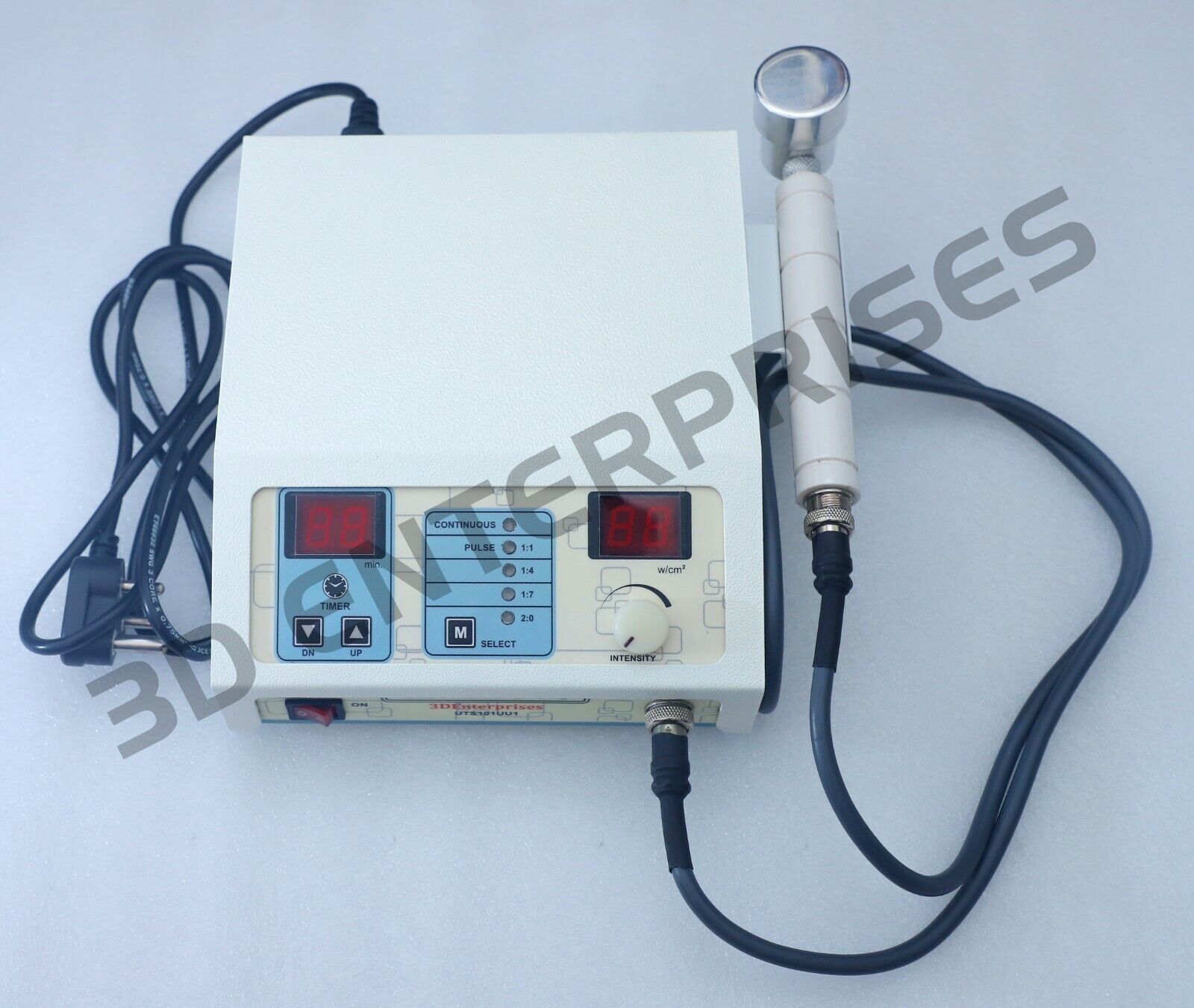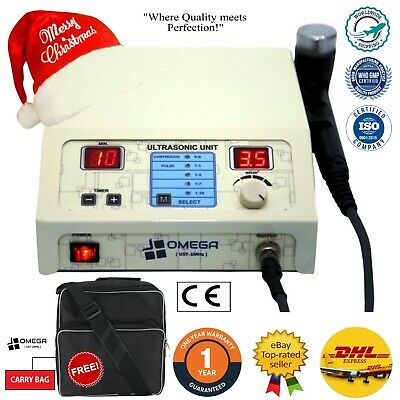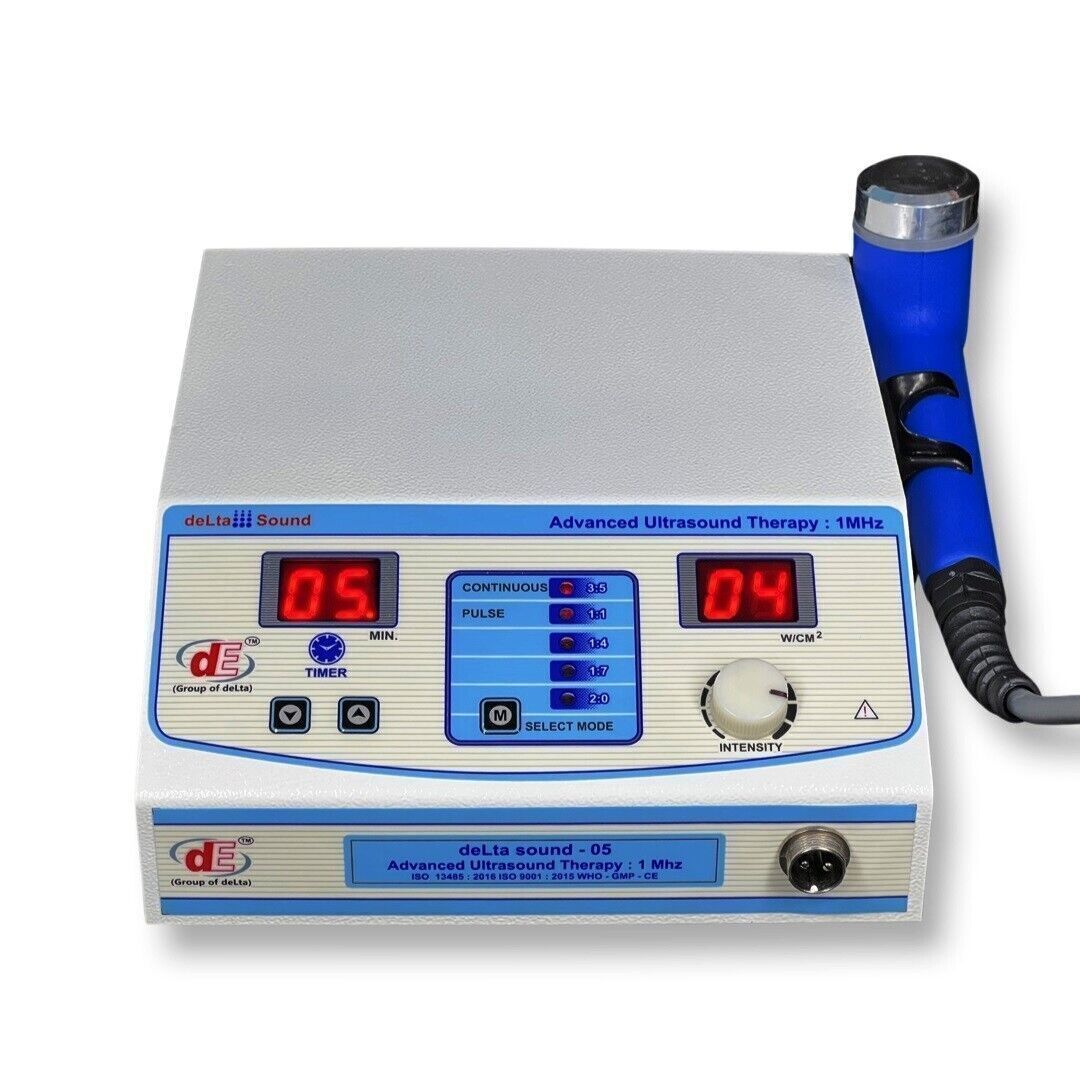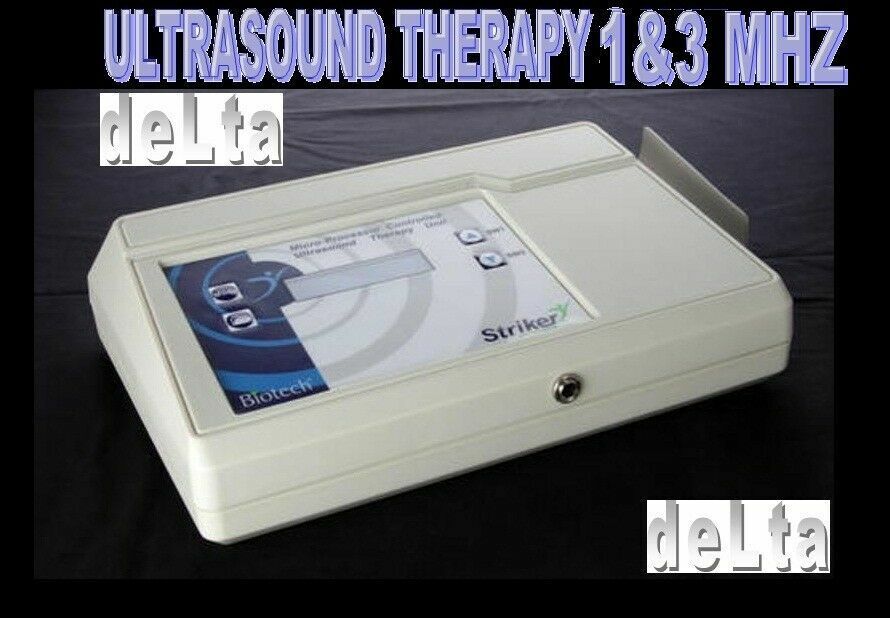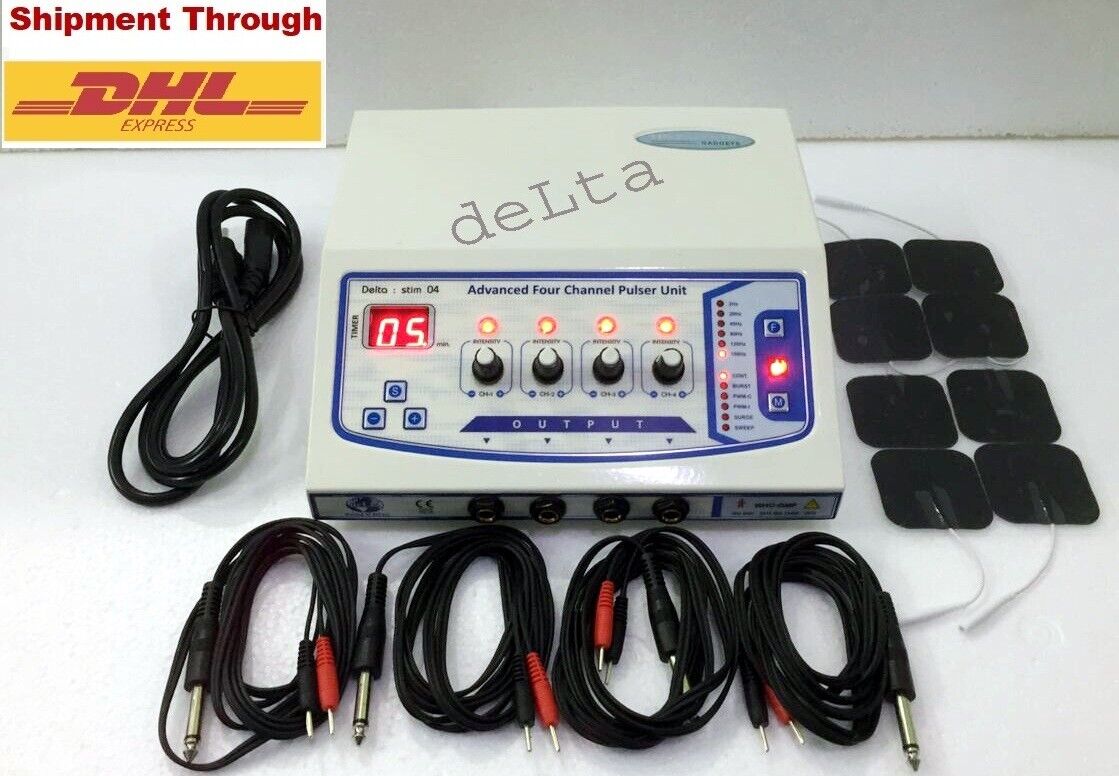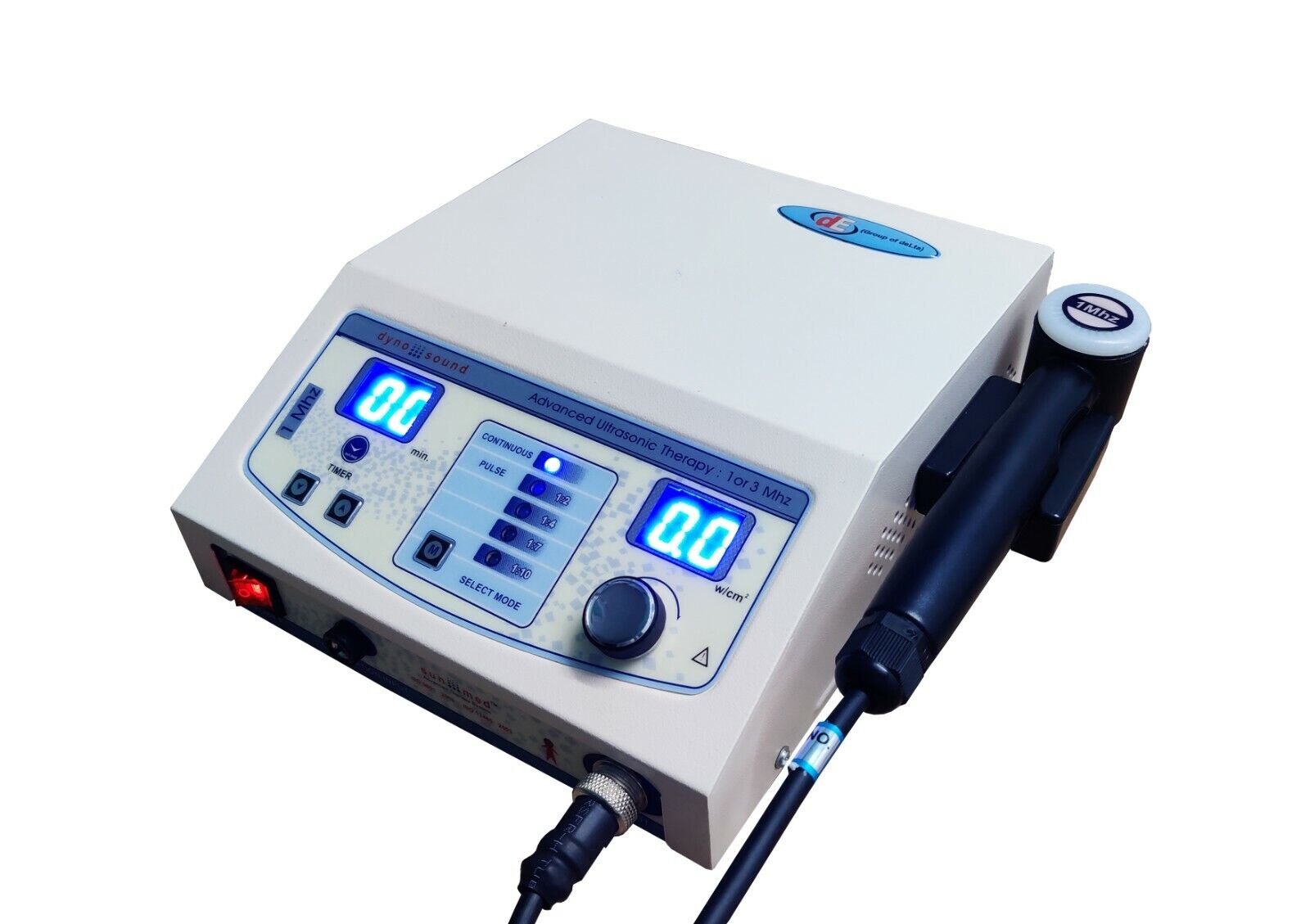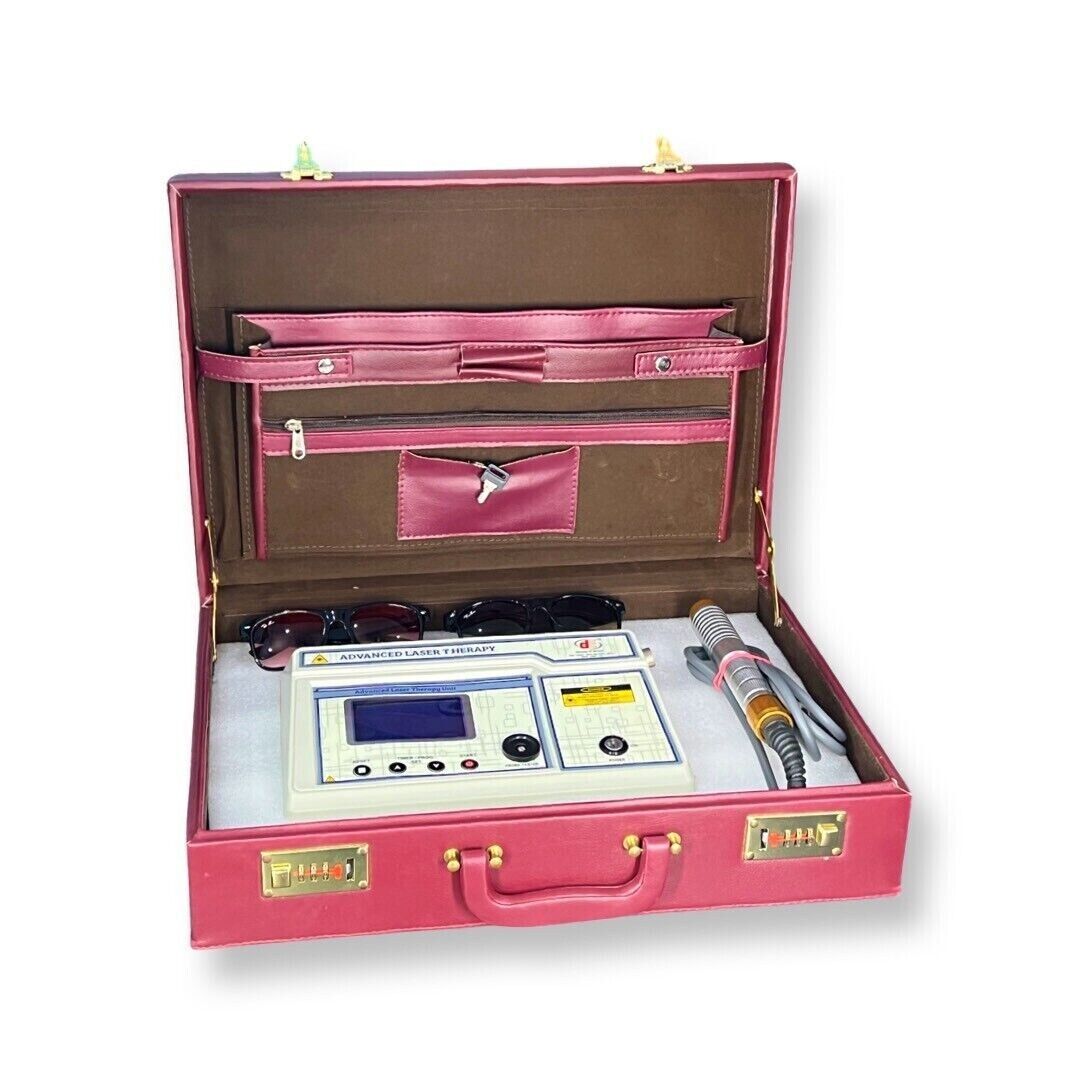-40%
Portable Professional Ultrasound Therapy Machine for Pain relief with deep 1Mhz
$ 58.07
- Description
- Size Guide
Description
Portable Professional Ultrasound Therapy Machine for Pain relief with deep 1Mhz100% Original Product
TECHNICAL SPECIFICATION:
Frequency : 1 MHz
Ultrasound Output : 15 Acoustic
Ultrasound Head : 3.0 watts/cm2
Treatment Time : 0-60 Min
Modes: continuous and pulse waves.
Available voltage: 110/220v
Dimension & Weight (given in the product picture gallery)
ACCESSORIES:
Main Unit: 01 No.
Ultrasound Applicator: 01 No.
AC Cord provided for different countries: 01 No.
Instruction Manual :01 No
APPLICATION:
Therapeutic Ultrasound provides therapeutic deep heat treatment for Relaxation
Reduce swelling and inflammation.
Promote the synthesis of proteins inside the cells
Lymphatic Drainage with cellulite reduction
Regenerate wounded tissues
Accelerate the metabolism of cells
KEY FEATURES
:
One of the Largest selling ultrasound machines worldwide
Frequency - 1 MHz
Intensity upto 3.0 watt/cm2
Microprocessor controlled Digital Unit
Pulsed and Continuous application
Durable body with comfortable ultrasound head
Know More About Ultrasound Therapy..
What is Therapeutic Ultrasound?
Therapeutic ultrasound is a modality that has been used by physiotherapists since the 1940s. Ultrasound is applied using the head of an ultrasound probe that is placed in direct contact with your skin via a transmission coupling gel.
Therapeutic ultrasound has been shown to cause increases in:
healing rates
tissue relaxation
tissue heating
local blood flow
scar tissue breakdown.
How Can Ultrasound Help You?
The effect of ultrasound via an increase in local blood flow can be used to help reduce local swelling and chronic inflammation, and, according to some studies, promote bone fracture healing. The intensity or power density of the ultrasound can be adjusted depending on the desired effect. A greater power density (measured in watt/cm
2)
is often used in cases where scar tissue breakdown is the goal.
Ultrasound can also be used to achieve
phonophoresis
. This is a non-invasive way of administering medications to tissues below the skin; perfect for patients who are uncomfortable with injections. With this technique, the ultrasonic energy forces the medication through the skin. Cortisone, used to reduce inflammation, is one of the more commonly used substances delivered in this way.
The most common conditions treated with ultrasound include soft tissue injuries such as tendonitis (or tendinitis if you prefer), non-acute joint swelling and muscle spasm. Most muscle and ligament injuries can benefit from therapeutic ultrasound.
What is an Ultrasound Dose?
A typical ultrasound treatment will take from 7-10 minutes. In cases where scar tissue breakdown is the goal, this treatment time can be much longer. During the treatment the head of the ultrasound probe is kept in constant motion. If kept in constant motion, the patient should feel no discomfort at all.
Some conditions treated with ultrasound include tendonitis (or tendinitis if you prefer), non-acute joint swelling and muscle spasm.
How Does an Ultrasound Work?
The ultrasound waves are generated by a
piezoelectric effect
caused by the vibration of crystals within the head of the probe. The ultrasound waves that pass through the skin cause a vibration of the local soft tissues. This vibration or cavitation can cause a deep heating locally though usually no sensation of heat will be felt by the patient. In situations where a heating effect is not desirable, such as a fresh injury with acute inflammation, the ultrasound can be pulsed rather than continuously transmitted.
When Should Ultrasound be Avoided?
Contraindications of ultrasound include local malignancy, metal implants below the area being treated, local acute infection, vascular abnormalities, and directly on the abdomen of pregnant women. It is also contraindicated to apply ultrasound directly over active epiphyseal regions (growth plates) in children, over the spinal cord in the area of a laminectomy, or over the eyes, skull, or testes.
Like all medical equipment, when used by highly trained professionals such as your physiotherapist, therapeutic ultrasound is very unlikely to cause any adverse effects. Please consult your physiotherapist for their expert opinion on the best use of therapeutic ultrasound and your injury


